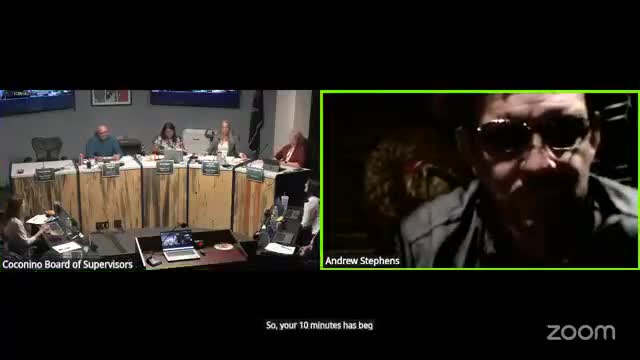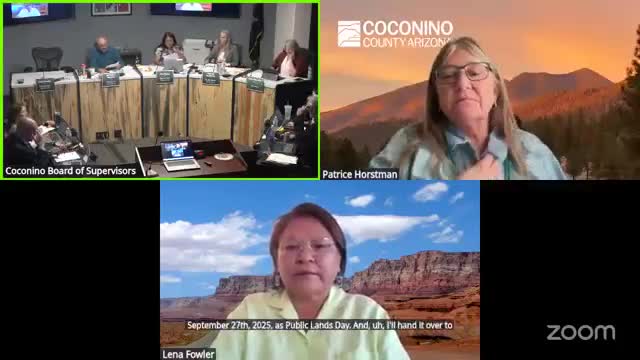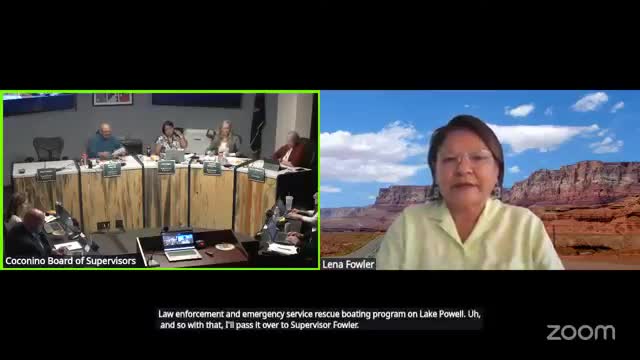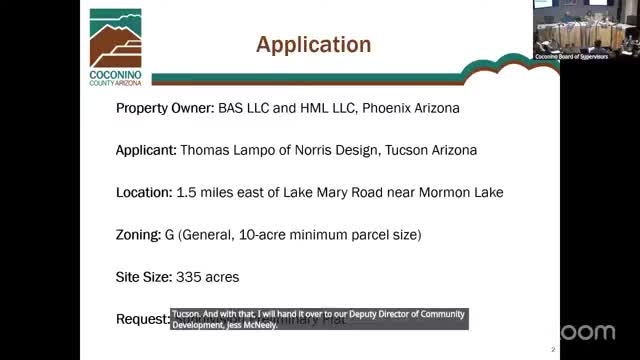Article not found
This article is no longer available. But don't worry—we've gathered other articles that discuss the same topic.

Coconino County board affirms hearing officer in Church of the Common Good code-enforcement appeal

At-a-glance: Coconino County board approves proclamation, liquor-license recommendations, RFQ award and consent items

Supervisors approve nearly $300,000 Arizona State Parks grant for Lake Powell rescue equipment

